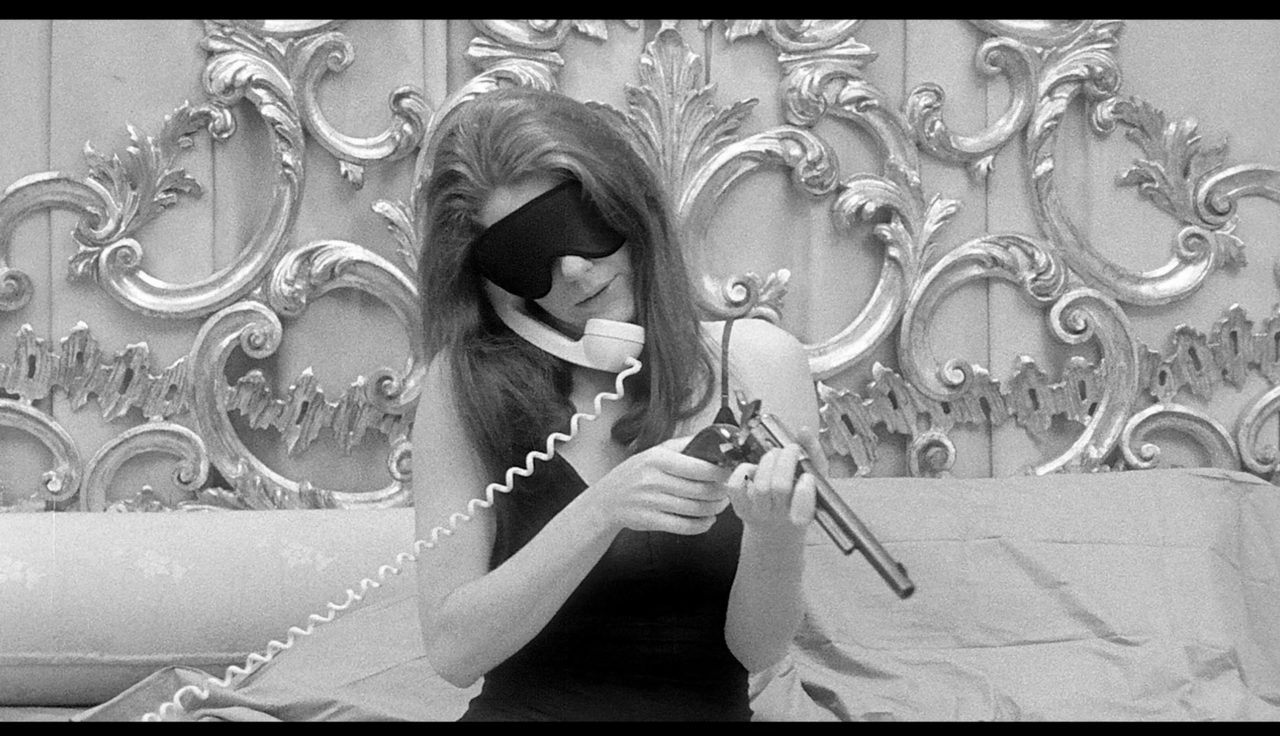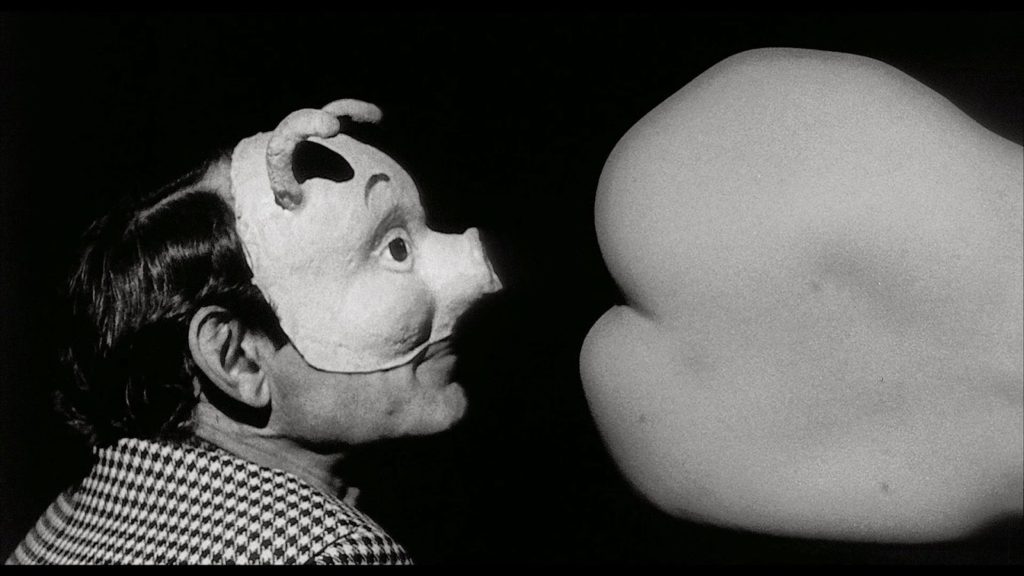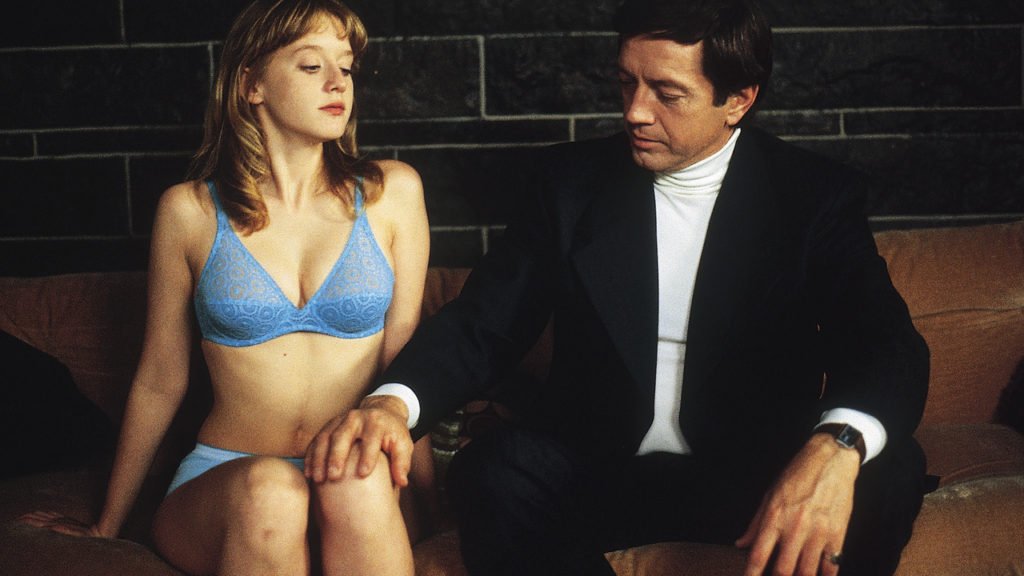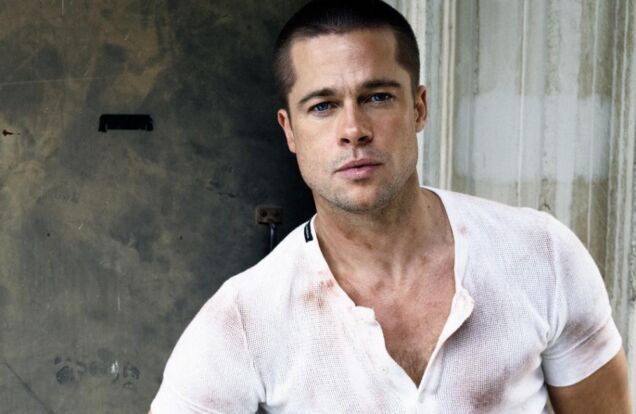Is It Hot In Here?
The Steamiest, Sexiest Movies You've Never Seen


Everyone loves a good sexy movie, the eroticism of the camera. Everyone knows Secretary or Eyes Wide Shut, but here’s a list of 10 I can almost guarantee you’ve never heard of.
The Dark Side Of Tomorrow (Just The Two Of Us)
In this 1970 (re-released in 1975 as Just The Two Of Us) movie, two bored housewives start an affair while their husbands are away, things get out of hand when one of the women wants more and other starts up a fling with another man. Sounds like the set-up for a porno doesn’t it? It was initially meant to be a sexploitation film, and some do view it as such. However, once directorial responsibility was given to Barbara Peeters, (who would go on to be known for her collaborations with Roger Corman) the film turned into a more tender love story between two lonely women. That being said, it is still an incredibly sensual film about a love affair between two women that was made at the beginning of the Pride movement.
Fun Down There
This 1989 movie follows Buddy (Michael Waite), a young, gay man from upstate New York who moves to NYC. The film follows his first week in NYC, where he finds himself living in the East Village. You decide if the “down there” in the title refers to his location or a different kind of “down there” fun, I lean towards the latter interpretation. His first night in the city he meets Joseph (Nickolas B. Nagourney), a gay man a couple years older than he. The two immediately get busy, and by “get busy” I mean they have some fun down there. The rest of the movie follows their burgeoning relationship, in addition to Buddy’s fling with another young man named Angelo (Martin Goldin). The movie was co-written by Waite and his real-life partner Roger Stigliano, who also directed it. In a conversation I had with Roger Stigliano, he told me that they based the relationship between Buddy and Joseph on his and Waite’s non-monogamous relationship in the 80s/90s. While AIDs is never a plot-point in the movie, there is discussion of how to have safe sex without contracting it.
Immoral Tales
This 1973 movie isn’t so much one cohesive narrative as it is a collection or erotic short films. And erotic they are. This film is separated into four different, unconnected stories, each story is inspired by different writers or historical accounts; religious imagery, incest, and other sexual taboos run rampant in this homage to surrealism. If you want to know how to turn the story of Elizabeth Bathory, the countess who allegedly bathed in the blood of virgins (in all likelihood this was made up by men who wanted to undermine a powerful woman) into something sexy, this is the movie for you, as the third short film is an erotic retelling of her story. Whether this movie turns you on or not, watching it, much like reading Justine by the Marquis de Sade, is an interesting historical relic. Maybe your nether regions won’t be piqued, but your mind sure will.
In The Realm Of The Senses
This 1976 French-Japanese film by Naga Oshima is set in Tokyo in 1936 and is a fictionalized retelling of the affair between Sada Abe, a former prostitute turned hotel maid, and Kichizo Ishida, the owner of the hotel where she works. As the film progresses, so do the lengths to which Sada and Kichizo go sexually for gratification.

This movie is all kinds of kinky. Not only is it super kinky, but what sets it apart from most other erotic films is that this one features un-simulated sex scenes between the actors. If you thought Lars Von Trier’s Nymphomaniac was groundbreaking for using un-simulated sex (performed by porn actors and not the main cast), Oshima already did it. In fact, this film had to be made as a joint French endeavor to get past Japanese censorship laws concerning the sexually explicit content. Of course this film faced controversy wherever it went for its content, which only adds to its allure. Who wouldn’t be intrigued?
My Father Is Coming
This 1991 movie by Monika Treut (co-written with Bruce Benderson) follows Vicky (Shelley Kästner), a German immigrant who has moved to New York to become an actress, instead she ends up waiting tables. When her dad, Hans (Alfred Edel), announces he’s coming to visit she convinces her gay roommate, Ben, to pretend to be her husband. Of course, when dear old dad arrives, he’s not as straight-laced as Vicky believed and both father and daughter embark on their own sexual journeys. For Vicky, that journey is coming to terms with her own sexuality, for Hans, things take a turn for the interesting when he goes with Vicky to an audition for a New Age erotic film with adult entertainer (porn star) Annie Sprinkle and hits it off with Ms. Sprinkle. This movie actually has a repeat performance from an actor in another movie on this list. Michael Waite, the lead in Fun Down There, makes a brief appearance as a waiter in My Father Is Coming.
Saturday Night At The Baths
Another (but not the last ) movie from the 1970s, is that really a surprise? This 1975 movie by David Buckley (co-written with Franklin Khedouri) follows a musician named Michael (Robert Aberdeen) who moves from Montana to New York City. He takes a job as the pianist at the Continental Baths (a famed gay bathhouse that was open in NYC from 1968-1975). At the Baths he meets, and find himself drawn to the manager of the Baths, Scotti (Dan Scotti, who actually was the manager of the Continental Baths and not an actor). The only thing is Michael is already in a relationship with Tracy (Ellen Sheppard). Yup, you know where this is going, bisexual love triangle. This movie embraces the free-love ethos of the 70s, because of course it does, but also encapsulates the short time in history post-stonewall and pre-AIDs of gay liberation, where films could actually depict scenes between two men making love. That being said, if you do get your hands on a copy of this film make sure it is the original, uncensored version that features the sex scene between Michael and Scotti and not the version that has reduced that scene to merely kissing.
The Telephone Book
In college I took a class called Hollywood and American Culture. One of our assignments was to write an analysis of a movie that came out between 1960 and 1980. While scrolling through Netflix titles, I stumbled upon this film, watched the trailer and thought, heck yeah, this is what I’m writing about. I emailed my professor to give him a heads up since I was almost certain he’d never heard of this movie. The next morning I awoke to an email from him that read, “This better be one hell of an essay because that movie just drove my wife from the living room.”

This predominantly black-and-white, 1971 movie tells the story of Alice, a Betty Boop-voiced young woman (played by Sarah Kennedy, a relative of the Kennedys) who falls in love with the world’s best obscene phone caller. She decides to try to find this man and goes on an adventure through sexual liberation-era NYC, meeting a whole host of interesting characters along the way, including a dominatrix and a man with a perpetually erect penis. All the while, the film is interspersed with “confessions” from reformed obscene phone-callers. This is the only movie ever made by Nelson Lyon, who went on to write for SNL until one fateful weekend he went on a binge with John Belushi that ended in Belushi’s death and the end of Lyon’s career. There was originally an intermission filmed for this movie of Andy Warhol sitting, eating popcorn, and staring into the camera. The intermission was cut from the final edit and the footage has since been lost. The film ends with a 9-minute long animated sequence of a horny, cartoon vagina trying to find release. Yeah, you read that right, this movie is insane. And by the way, it was one hell of an essay.
A Very Natural Thing
This 1974, independent film is actually the first theatrically released movie to positively portray gay men. Up till then, movies with gay characters were either depicted non-sexually (The Boys In The Band) or, if there was sexual contact, it was predatory (The Sergeant), A Very Natural Thing, with its full-frontal male nudity and multiple sex scenes between two or more men changed all that. The film follows David (Robert McLane), an ex-monk, now NYC school teacher and his search for love in NYC. He meets and falls in love with Mark (Curt Gareth). After being together a few years, cracks in their relationship start to form due to David’s desire for monogamy and Mark’s desire for an open relationship, in an attempt to fix their relationship, they attend an orgy on Fire Island, which works about as well as you’d expect. This was the first, and only movie made by Christopher Larkin, who himself was an ex-monk turned school teacher. The film, which features footage from the actual Pride parade, was seen as the gay version of Arthur Hiller’s Love Story (incidently, Arthur Hiller would go on to direct Making Love, the first positive LGBT romance made by a major studio in 1982.) The film was not a critical success, many LGBT critics felt the film was not political enough, and that the desire for monogamy was too heteronormative. Larkin responded by saying that the movie was personal and he wanted to depict relationships between gay men as no different to between a man and a woman.
Viva
Before she made her best known (which even still, is not that well known) film, The Love Witch, Anna Biller wrote, directed, and starred in Viva. Viva is set in Los Angeles in the early 1970s, so of course it’s about the sexual revolution. The film follows Barbi, a suburban housewife whose husband is more interested in his work than pleasing his wife’s sexual desires. That all changes when the more free-love Mark and Sheila move in next door. When her husband finds out about her extramarital endeavors he leaves her. She changes her name to Viva and goes on a sexual romp through the sexual revolution. Biller has said that the project originally started as a photo series inspired by old Playboy magazine. Using that series as a jumping off point to create her characters, she took inspiration from the Luis Buñuel classic Belle de Jour, which is about a housewife who becomes a high-class escort. As a filmmaker, Biller has clearly been influenced by the sexploutation films of the 70s, and it’s always a blast to watch. If you love a good, brightly colored, poppy romp, her films are for you.
Water Drops On Burning Rocks
This four-person film is split up into four acts following the evolutions and disintegrations of their relationships. Released in 2000, this French film by François Ozon (adapted from a play by Rainer Werner Fassbinder) follows the relationship between middle-aged businessman Léopold (Bernard Giraudeau) and younger man Franz (Malik Zidi). When they first meet Franz is originally engaged to Anna (Ludivine Sagnier), but is not sure he is in love with. Léopold convinces Franz to leave Anna and be with him.

Now that would be the end of the story for most films, but things are just heating up in this one. As Franz and Léopold stay together, their relationship becomes more and more antagonistic until one day Anna shows up quickly followed by Léopold’s ex-girlfriend Vera (Anna Levine). One thing leads to another, and well… This is certainly a very French movie about sexuality and the power dynamics involved in interpersonal relationships.


